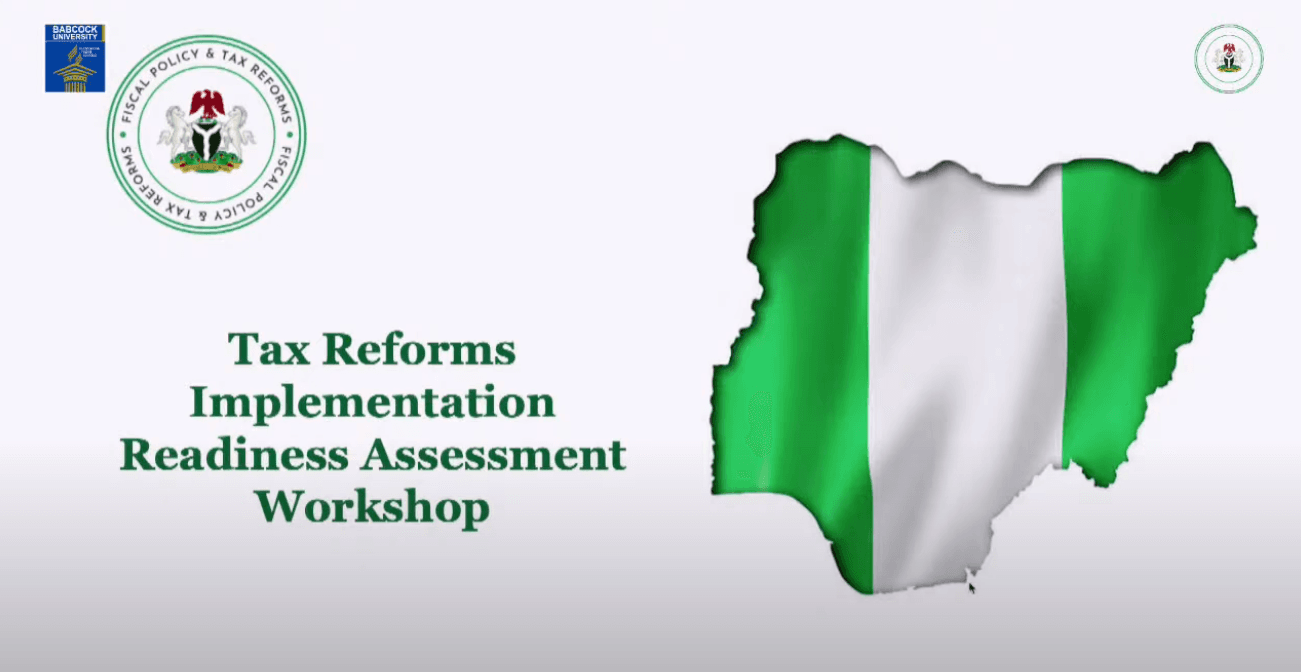The Presidential Fiscal Policy & Tax Reforms Committee (PFP TRC), under the leadership of President Bola Ahmed Tinubu, recently convened a crucial event: the "TAX REFORMS IMPLEMENTATION READINESS ASSESSMENT WORKSHOP."
This workshop, buzzing with key stakeholders from the private and public sectors, and even academia, signals a serious push toward overhauling Nigeria's tax system. Broadcast journalist Elizabeth Musa skillfully guided the day's conversations, emphasizing a desire to move beyond abstract discussions and deliver tangible benefits to the average Nigerian, "the woman on the market.".
After the national anthem, the chairman of the PFP TRC, Mr. Taiwo Oyedele, delivered a welcome address, highlighting the extensive national debate surrounding tax reforms over the past two years. While acknowledging the positive engagement, he noted a common misconception: that the reforms are solely about VAT sharing or inheritance tax. It's so much more, he emphasized, with over 200 significant changes in the works. And the goal? To prepare critical stakeholders for the imminent implementation of these reforms.
Oyedele stressed that Nigeria's challenge isn't a lack of good laws, but effective implementation; how well we prepare dictates how well we implement. "The reforms," he stated, "will only be as good as how well they are implemented." He encouraged open, constructive criticism, but reminded everyone that the aim was to make Nigeria a better place, not to engage in endless protocol.
Professor Adewale Dipeolu, the Vice Chancellor of Babcock University (co-hosts of the event), echoed this sentiment. He framed the tax reforms as a vital step toward strengthening Nigeria's economy, tackling issues like multi-layered taxation. He expressed confidence that the workshop would serve as a platform for assessing readiness and sharing insights, all with the goal of successful implementation. Key areas to explore, he noted, included simplifying tax processes, reducing bureaucracy, and embracing the digitalization of tax administration. Babcock Business School, he announced, is partnering with the committee to further advocacy, training and research in this critical area.
Goodwill Messages: Voices from Academia
The workshop also featured goodwill messages from several other university leaders.
- Representing the University of Ibadan, Professor Olawale Olayide emphasized the importance of domestic resource mobilization, particularly given decreasing international support. He suggested focusing on expanding the tax net rather than simply increasing rates, and stressed transparent utilization of tax revenues.
- Professor Kabir Adeyemo, the Vice Chancellor of Lead City University, underscored the urgency of the reforms, given Nigeria's underperforming tax system. He highlighted the need for stakeholder preparedness, focusing on institutional capacity, public awareness, and collaborative ownership.
- Professor Olatunbosun Olusanya, the Vice Chancellor of KolaDaisi University, stressed the need for an enabling environment for businesses to thrive, alongside improved transparency and accountability.
- Professor Solomon Ajayi Adebola, the Vice Chancellor of Adeleke University, questioned why people resist paying taxes. Convincing people of the value of tax revenue was key, he argued, along with fair distribution. He also pointed to the need to embrace digital solutions and address the issue of tax waivers and the exclusion of private universities from certain funds.
- Representing Pan-Atlantic University, Dr. Olawunmi Vincent lamented Nigeria's huge tax base but low tax collection-to-GDP ratio. He questioned whether there are incentives for remaining informal and advocated a closer look at the informal sector.
- Representing Osun State University, Professor Oluyemisi Badamosi suggested transforming the presidential committee into an inter-ministerial outfit to ensure continuity.
- Professor Uchenna Machi Maxwell Abani, representing Abia State University, stressed the importance of policy coordination and moving from policymaking to policy implementation.
- Representing Covenant University, Professor Francis Dairo emphasized that attitude is everything, recommending an attitude reform bill, he advocated for transparency, legacy projects, and presumptive tax.
Oyedele's Presentation: A Deep Dive into the Reforms
Following the goodwill messages, Mr. Oyedele provided a detailed presentation, framing the reforms within the context of Nigeria's current fiscal challenges. He highlighted multiplicity of taxes, high tax burdens, archaic laws, and a low tax-to-GDP ratio as key issues. The reforms, he emphasized, are people-centered, growth-focused, and efficiency-driven. He outlined key performance indicators (KPIs) and expected benefits for businesses, households, and the government.
Oyedele then delved into ten critical changes proposed in the reform bills:
- VAT reforms, including input VAT credits.
- Personal income tax reforms to address fiscal drag.
- Corporate income tax reforms.
- Combating tax evasion and aggressive tax avoidance.
- The tax ombudsman, designed to protect vulnerable taxpayers.
- Accreditation of tax agents to promote ethical compliance.
- Reformed withholding tax regime.
- Economic development incentive scheme to promote manufacturing.
He stressed that businesses need to start planning for these changes now.
Panel Discussion: A Multi-faceted Assessment
A panel discussion followed, featuring experts from various sectors, to assess the readiness for implementation. The workshop concluded with a call to action: to understand the reforms, bridge the gaps, and position oneself to capitalize on the opportunities they present. Oyedele urged participants to create their own "luck" by preparing for the future and actively contributing to building a better Nigeria.
You may watch the full video of the Workshop on Youtube
